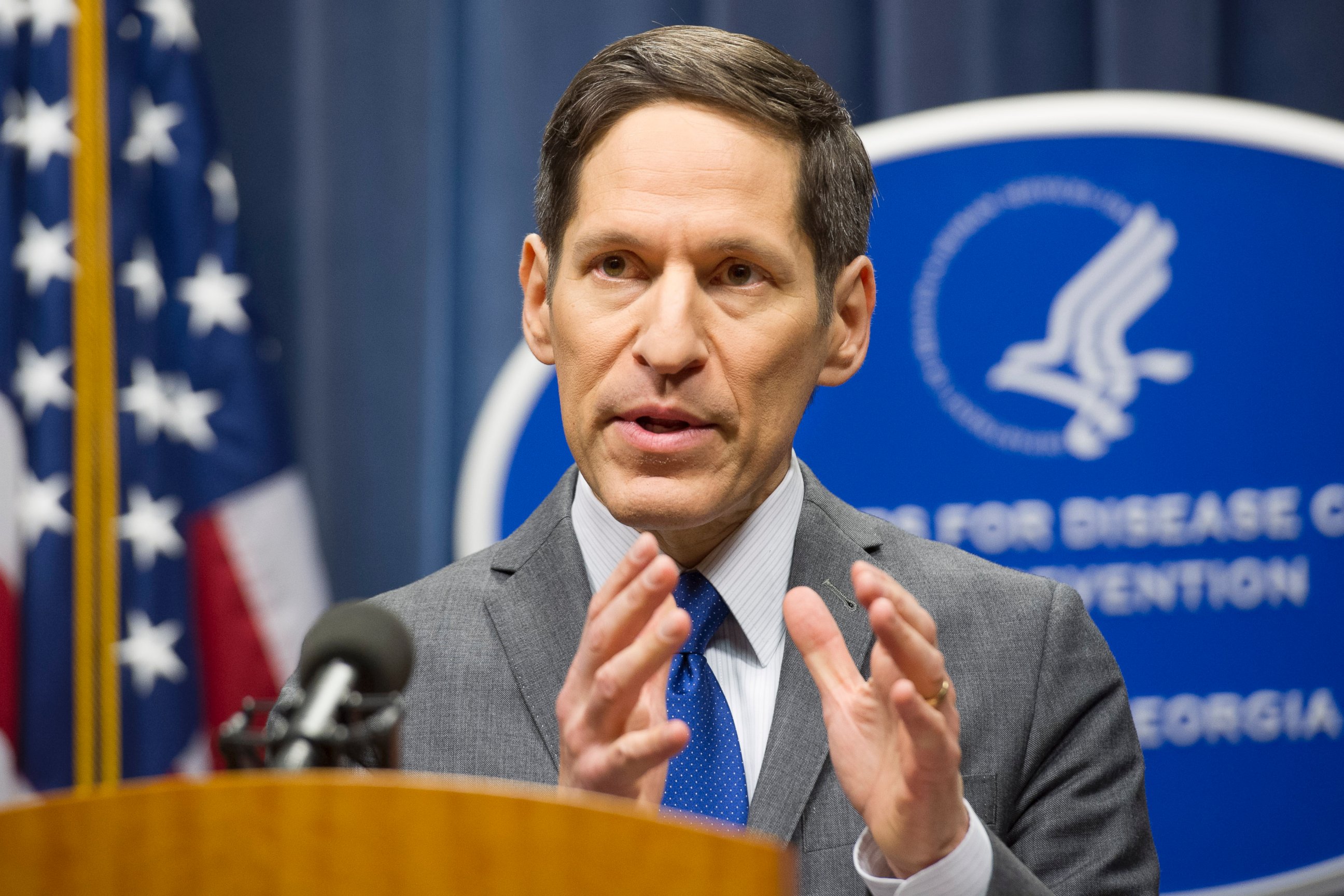Breach in Protocol Led to New Ebola Diagnosis, Says CDC Director
Woman treated Thomas Eric Duncan.
— -- A female health care worker who treated Thomas Eric Duncan has contracted Ebola, becoming the first person to get the disease in the United States, the director of the Centers for Disease Control and Prevention said today.
Officials said the nurse was wearing full protective gear while treating Duncan in quarantine at Texas Health Presbyterian Hospital, but somehow she got infected anyway, through what they said must have been a breach of Ebola safety protocol.
She started having symptoms -- including a low fever -- Friday night and drove herself to her own hospital. Within 90 minutes, she was in isolation and late Saturday night, the preliminary Ebola test came back positive.
The woman has been interviewed by investigators, but she could not identify when the breach may have happened, CDC Director Dr. Tom Frieden said.
"It is deeply concerning that this infection occurred," he said.
"It is possible that we will see more Ebola cases," Frieden said. "We will undertake a complete investigation of how this may have occurred. That's so important, so we can understand it better, and intervene to prevent this from happening in the future."

The health care worker, who was said to be in stable condition, had been taking her temperature twice daily under the CDC's self-monitoring regimen since treating Duncan, who died last week.
Health officials are also monitoring another person, whom they have in isolation, who may have had contact with her, Frieden said.
She was not one of the initial 48 people who have been monitored for Ebola after they came into contact with Duncan when he was admitted into the hospital, but is instead part of an additional group of people who may have come into contact with Duncan while he was being treated, the CDC chief said.
"We are confident that the precautions we have put in place will protect our health care workers," said Dr. Daniel Varga with Texas Health Presbyterian Hospital.
Health officials were trying to determine how many people she might have had contact with and who else might need to be monitored.
"In order to determine that number we cast the net wide and identify first who might have had contact," Frieden said. "Then we do detailed interviews and record interviews with each and every one of them to identify those who definitely did have contact, those who definitely didn't and those for whom we cannot rule out that they had contact."
The apartment complex where she lives was being decontaminated today, said Dallas Mayor Mike Rawlings. Officials also went door-to-door in the neighborhood and distributed leaflets about the virus.
A dog found inside her apartment is also being monitored, Rawlings said. A hazmat crew was the building this afternoon, cleaning the interior of the apartment.
ABC News chief health and medical editor Dr. Richard Besser called the health care worker's case concerning, adding that public health officials will need to investigate how the exposure occurred.
While the CDC has said that any hospital is capable of safely treating Ebola, Besser said health care workers need training and practice using protective equipment to do so successfully.
"I would never have gone into an Ebola ward in Africa without being dressed and decontaminated by experts," he said. "Health care workers here should expect no less."
Frieden urged that all hospitals be prepared to care for patients with Ebola.
"Diagnosis needs to be done anywhere," Frieden said. "What is the safest way to provide care, that is what we we will be looking at."
Duncan died Wednesday at Texas Health Presbyterian Hospital, where he had been isolated during his treatment. His medical records show he had a 103-degree fever when he initially went to the hospital, but was sent home with antibiotics and Tylenol.
He returned to the hospital two days later when his symptoms worsened.
Duncan, who comes from Liberia, had arrived in the U.S. on Sept. 20 to visit family members in Dallas.
His neighbors in Monrovia told ABC News that he had helped carry a vomiting pregnant woman to get help, but his records revealed that he told the hospital he hadn't been in contact with anyone who was sick, according to The Associated Press.
Doctors and nurses at the hospital were aware Duncan had recently been in Africa.
While the health care worker undergoes treatment at Texas Health Presbyterian Hospital, the hospital will divert its emergency care services to surrounding hospitals, Varga said.
Get real-time updates as this story unfolds. To start, just "star" this story in ABC News' phone app. Download ABC News for iPhone here or ABC News for Android here. To be notified about our live weekend digital reports, tap here.



